«The Convention will enhance the quality of human protection from criminal prosecution», - Valentyn Gvozdiy, the Vice President of the UNBA, BCU
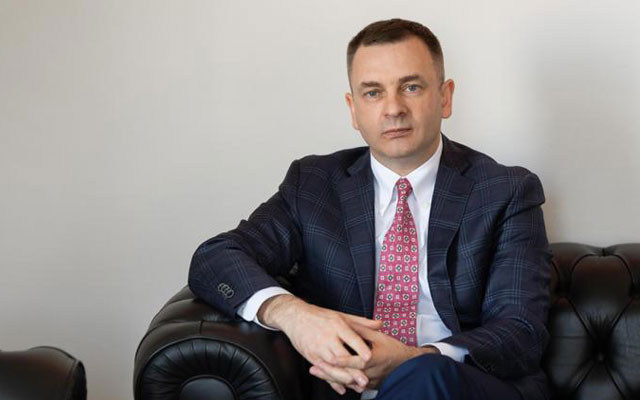
Recently, the Council of Europe adopted the Convention on the Protection of the Profession of Lawyer, an international treaty that guarantees the independence, security and self-governance of lawyers. The latter call it a key step towards strengthening the rule of law. But what does this mean in practice, why is the Convention of extraordinary value - these and other questions were answered by Valentyn Gvozdiy, the Vice President of the UNBA, BCU, to the host of Fakty ICTV.
– Mr. Gvozdiy, please explain the value of this treaty, why it is presented as big news? I have seen in several sources that this is the first international treaty in history aimed at protecting the legal profession. Wasn't the profession protected before?
– The Convention is binding on the countries that sign it. Therefore, it is very important. After all, an international treaty that the Verkhovna Rada has ratified has a higher legal force than national legislation.
Why is it important for people, why is it important for every citizen? It's very simple: the state is an institution that has so-called positive coercion. That is, it has the resource to force people to comply with the law through its system of law enforcement agencies: the national police, the prosecutor's office, and the judiciary. And in a democratic society (as opposed to totalitarian regimes), the feature of a rule-of-law state (and Ukraine is a rule-of-law state, as it is written in the Constitution), the difference is that the state must provide a person with protection from its positive coercion. And this protection must be reliable, appropriate and effective.
What does it mean? What the rule of law means in a simple sense for every person is that when you are accused of a crime you did not commit, the court will not put you in jail. This defense is provided by an independent bar, which operates in the state as a system of justice.
However, it is independent of the state. And lately, a lot of people in different jurisdictions (this is not just a problem in Ukraine. I will say more, in Ukraine this problem is less acute than in some other countries) lawyers are persecuted precisely because they defend their clients and this leads to the fact that a person cannot defend himself against the state, he is left alone, alone with a machine that can crush him.
This is why the Convention was initiated by the Council of Europe and adopted. It will be officially signed in Luxembourg on May 13.
– Does Ukraine have to ratify it at the parliamentary level if it is a convention?
– In order for Ukraine to get it as part of the legislation, the first step is to sign it. Our country should be one of the first to do so, as we were directly involved in its development. I was the vice president of the committee of experts who drafted the text of the document.
The Convention enters into force after being signed by at least eight signatories (six of which must be members of the Council of Europe, and Ukraine has been a member of the Council of Europe since 1995). For it to be binding on a particular country, that country must ratify it. That is, two steps: the first is signing, the second is ratification.
Or if for some reason Ukraine does not sign, and the other eight countries do, it will be open for ratification and the parliament will be able to do so at any time.
– Is Ukraine ready to sign or will it wait until the other eight countries sign?
– I hope so and I have such insider information that our governmental institutions and our parliament are very optimistic. And they have sent signals publicly, in particular at the Parliamentary Assembly of the Council of Europe, when our delegation supported and voted for this Convention.
Also, the Ukrainian representative in the Committee of Ministers (which is the highest governing body in the Council of Europe) voted in favor of this Convention.
Therefore, these two important signals indicate that Ukraine as a state is ready to sign and ratify the Convention. The only question is when. And we hope that this will happen extremely quickly, because it will show our commitment to European standards, high standards of human rights protection, and the rule of law. And this will also be the next step towards improving the legal situation, towards improving the justice system in Ukraine as a whole, of course.
– But then the question arises: when we sign and ratify it, who will monitor compliance with this Convention by countries, including Ukraine?
– The Convention itself provides for a clear mechanism for its monitoring. A specialized group of experts (at least 8, maximum 12 representatives of different jurisdictions) will be created, who will be openly elected in the Council of Europe and will be called the GRAVO group. And when we were writing this Convention, there was a very interesting session where we selected the name of this committee. And AVO means advocate, and GR is just an abbreviation. Taken together, we came up with a new word. It is the name of a monitoring group that will be endowed with diplomatic immunity and broad functions.
Representatives of this group, having received a signal about violations of the rights of lawyers (and, accordingly, human rights), will be able to travel to a country where the Convention is binding, will be able to meet freely with the persons concerned, with law enforcement agencies, and will have access to documents.
All this makes protection from criminal prosecution extremely transparent. And difficult to manipulate. And when this Convention is adopted and becomes part of the law, it will enhance the quality of protection against criminal prosecution.
This does not mean that it will create conditions for avoiding criminal liability. But when people are persecuted for one reason or another and their lawyer is taken away from them, access to a lawyer is blocked, they are not allowed to meet with a lawyer... I know European countries where you cannot have a confidential meeting with a lawyer for two weeks when you are detained and this is a European Union country, this is one of our neighboring countries. And this is unacceptable in Ukraine, where the criminal procedure legislation is much better than in some countries of the European Union. And this is a fact.
The article was published in Law and Business.
Popular news
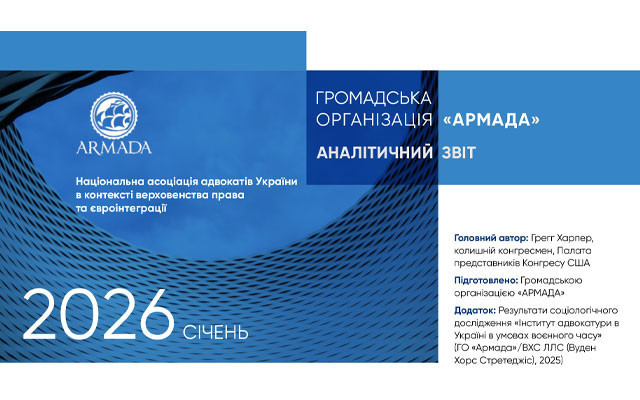
European integration
A translation of the report on advocacy presented to the European Parliament has been published
A translation of a research report on the Ukrainian advocacy profession in wartime, previously presented to the European Parliament in Brussels, has been published. The document is presented as a basis for discussion on the rule of law, Ukraine's European integration aspirations, and countering Russian disinformation in the legal sphere.
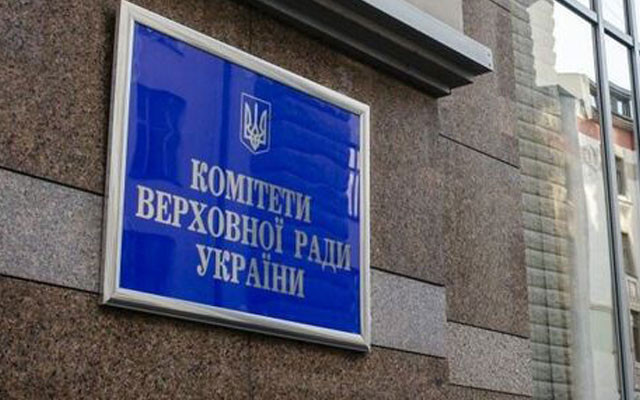
Legislation
The Verkhovna Rada Committee criticized the format of the government working group on advocacy
The implementation of the Roadmap on the rule of law (approved by Cabinet of Ministers Resolution No. 475-r of May 14, 2025) in relation to advocacy raises the practical question of who exactly should prepare legislative changes and how.
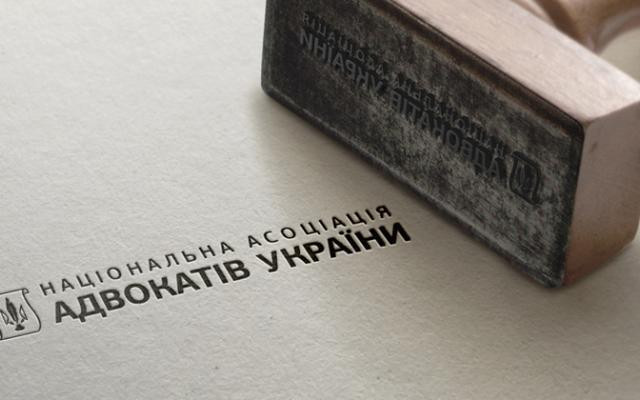
Self-government
The BCU demands a review of the composition of the government working group on reforming the advocacy profession
The President of the UNBA, BCU Lidiya Izovitova, appealed to the Cabinet of Ministers of Ukraine to review the composition of the working group on improving legislation in the field of advocacy and legal practice.
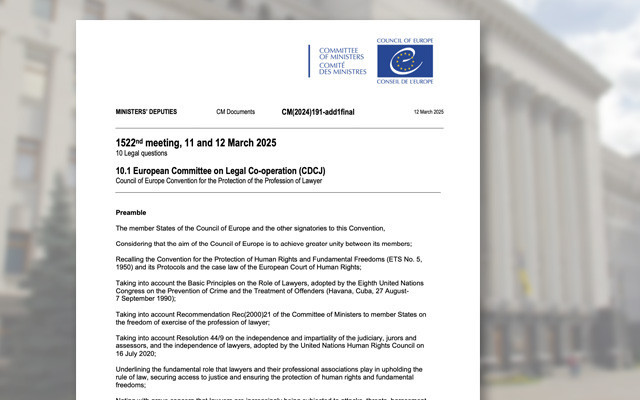
Guarantees of the practice of law
The President has determined, who will sign the Convention for the Protection of the Profession of Lawyer
President of Ukraine Volodymyr Zelenskyy authorized Ukraine's Permanent Representative to the Council of Europe Mykola Tochytskyi to sign the Council of Europe Convention for the Protection of the Profession of Lawyer.

Discussion
Why lowering the age of marriage lacks legal logic
Although until 2012 there was a provision in family law that allowed children to marry from the age of 14 under certain circumstances, its return to Ukrainian law would contradict international obligations and the logic of criminal law.
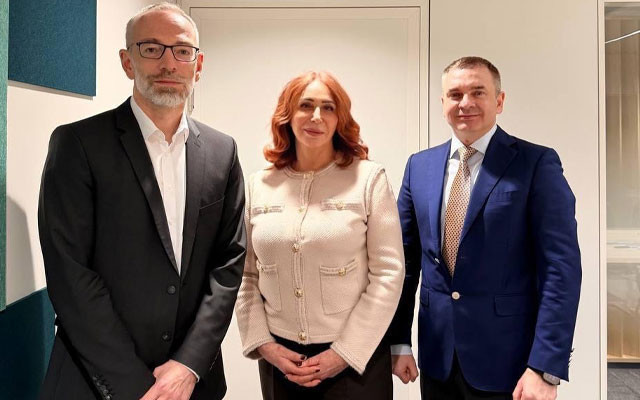
European integration
Open dialogue between the UNBA and the European Commission on the path to EU
The Ukrainian National Bar Association held a working meeting in Brussels with Mr Wolfgang Nozar, Head of Unit for Governance, Rule of Law and Financial Assistance, Directorate-General for Enlargement and Eastern Neighbourhood (DG ENEST), European Commission.

Self-government
A report on Ukrainian advocacy was presented in the European Parliament
Can a shadow report on advocacy replace the political framework of the Roadmap on the rule of law with demands for the restructuring of self-government? Where is the line between accountability and the seizure of institutions? And how can we respond to narratives with data rather than impressions?
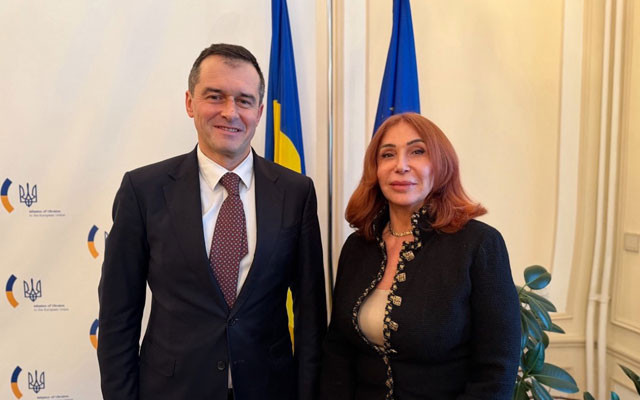
European integration
UNBA and Ukraine's representation to the EU have synchronized their priorities
On February 5, in Brussels, the President of the UNBA, BCU Lidiya Izovitova held a working meeting with the Ambassador Extraordinary and Plenipotentiary of Ukraine, Representative of Ukraine to the European Union Vsevolod Chentsov.
Publications

Volodymyr Matsko Extradition as a systemic form of rights violations

Victoria Yakusha, Law and Business The anti-corruption vertical cannot «take care» of the Bar as an institution, - acting head of the HQDCB

Censor.net Protecting advocates – protecting justice: addressing concerns about the new law

Ihor Kolesnykov A BRIEF SUMMARY REGARDING THE APPLICATION OF THE ORDER ON EXTENDED CONFISCATION IN LATVIA REGARDING FINANCIAL ASSETS OF…

Valentyn Gvozdiy WORKING IN A WAR ZONE

Lydia Izovitova Formula of perfection

Sergiy Vylkov Our judicial system is so built that courts do not trust advocates

Iryna Vasylyk Advocacy in the proclamation of Independence of Ukraine
